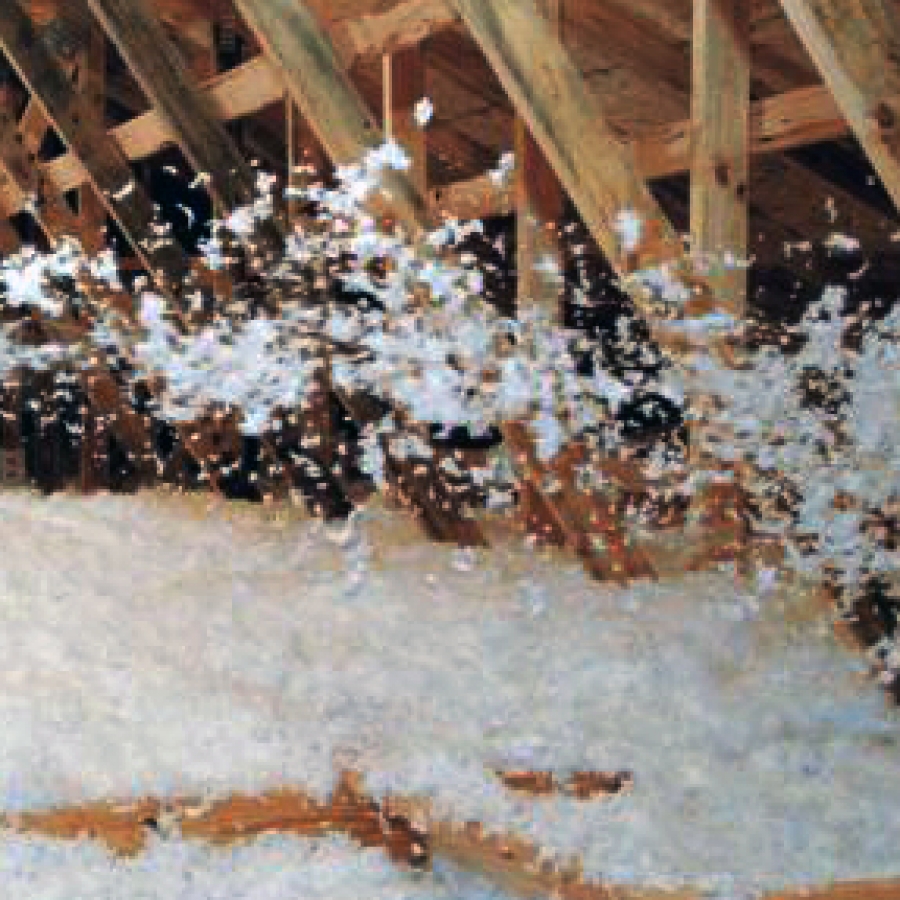Cellulose Insulation Material
Cellulose — a material used as loose-fill insulation — is made from recycled wood fiber, primarily newsprint. The wood fiber is shredded and pulverized into small, fibrous particles that pack tightly into closed building cavities, inhibiting airflow. This provides a thermal resistance of R-3.6 to R-3.8 per inch.

Topic Summary
Manufacturers add chemicals to the cellulose to make it insect and fire resistant. The major disadvantage of cellulose is that it absorbs more water than fiberglass or mineral wool. This can become a problem if water leaks from the outdoors since cellulose wicks water into itself and stores it. Too much water can also wash away the fire retardant.
Article source: The U.S. Department of Energy’s Office of Energy Efficiency and Renewable Energy (EERE). For the most up-to-date information please visit the EERE website.



